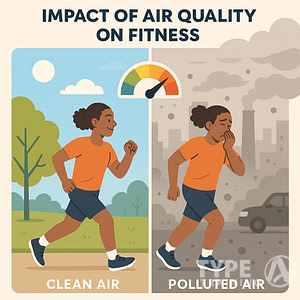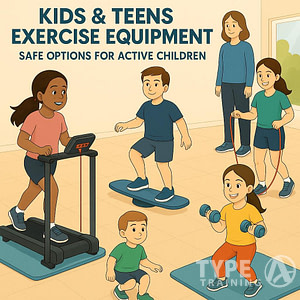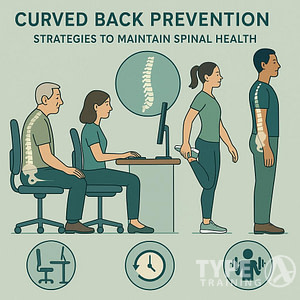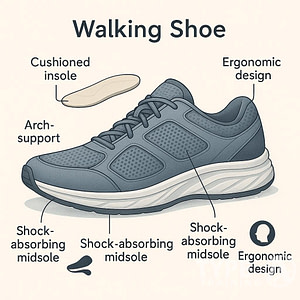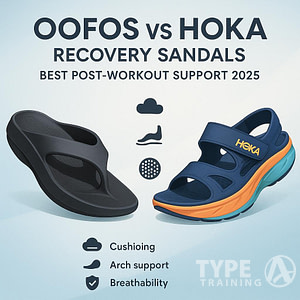As a young athlete, you likely already know how important exercise is to your performance. But did you know that nutrition plays an equally vital role? Proper nutrition can help you perform at your best, reduce your risk of injury, and support healthy growth and development.
According to a study published in the National Center for Biotechnology Information, adolescence is a period of significant physical development that includes altered body composition, metabolic and hormonal fluctuations, maturation of organ systems, and establishment of nutrient deposits, all of which may affect future health. Participation in sports plays an important role in supporting psychological well-being, but it’s not enough on its own. You need to fuel your body with the right nutrients to perform at your best.
Macronutrients such as carbohydrates, protein, and fat, as well as micronutrients such as vitamins and minerals, are all essential for young athletes. The International Sports Sciences Association notes that people can adjust the ratios of these nutrients based on the goal of physical activity. For example, endurance athletes may need more carbohydrates to fuel their workouts, while strength athletes may need more protein to support muscle growth. To learn more about the specific nutrients you need, consult a registered dietitian who specializes in sports nutrition.
Key Takeaways
- Proper nutrition is essential for young athletes to perform at their best, reduce the risk of injury, and support healthy growth and development.
- Macronutrients such as carbohydrates, protein, and fat, as well as micronutrients such as vitamins and minerals, are all essential for young athletes.
- Consult a registered dietitian who specializes in sports nutrition to learn more about the specific nutrients you need.
The Importance of Proper Nutrition for Young Athletes
As a young athlete, proper nutrition plays a crucial role in your athletic performance. Your diet should provide the necessary fuel and nutrients to help you maintain your strength, energy, and focus during training and competition.
Popular posts:
To optimize your nutrition, you should aim for a well-balanced diet that includes carbohydrates, protein, healthy fats, vitamins, minerals, and fluids. You should also consider the timing of your meals and snacks to ensure that you have enough energy to perform at your best.
According to the American College of Sports Medicine, young athletes should consume a diet that is high in carbohydrates to maintain their glycogen stores, which provide energy during activity. Good sources of carbohydrates include whole grains, fruits, and vegetables. Protein is also important for muscle growth and recovery. Lean meats, fish, poultry, eggs, dairy products, beans, and soy are all good sources of protein.
It’s also important to stay hydrated during activity to prevent dehydration, which can lead to fatigue and decreased performance. Water is the best choice for hydration, but sports drinks can also be beneficial during prolonged activity or in hot environments.
Registered dietitians can provide personalized nutrition advice for young athletes based on their body size, sex, age, and activity level. They can also help athletes navigate the cost and availability of nutritious foods.
As a young athlete, it’s important to prioritize your nutrition to support your athletic goals. A well-balanced diet can help you maintain a healthy body weight, improve your athletic performance, and prevent fatigue and dehydration.
“Nutrition is a key component of athletic performance. Just as you wouldn’t put cheap gas in a high-performance car, you shouldn’t fuel your body with junk food and expect it to perform at its best.” – The Dietitians of Canada
Sources:
- Research Gate
- The Dietitians of Canada
Macronutrients for Young Athletes
As a young athlete, proper nutrition is essential to fuel your body for optimal performance. Macronutrients, which include carbohydrates, protein, and fat, provide the energy and nutrients your body needs to perform at its best.
Carbohydrates
Carbohydrates are the body’s primary source of energy, and they are especially important for young athletes. Consuming carbohydrates before exercise can help increase muscle glycogen stores, which can improve athletic performance. Good sources of carbohydrates include whole grains, fruits, and vegetables.
According to the American College of Sports Medicine, young athletes should consume 3-12 grams of carbohydrates per kilogram of body weight per day, depending on the intensity and duration of their activity. Timing is also important, as consuming carbohydrates within 30 minutes after exercise can help replenish glycogen stores and aid in recovery.
Protein
Protein is essential for building and repairing muscle tissue, which is important for young athletes who are still growing and developing. Good sources of protein include lean meat, poultry, fish, eggs, dairy products, beans, and soy products like tofu.
The American College of Sports Medicine recommends that young athletes consume 1.2-1.4 grams of protein per kilogram of body weight per day, depending on their age, sex, and activity level. Timing is also important, as consuming protein within 30 minutes after exercise can help promote muscle recovery.
Fat
Fat is an important source of energy, especially during long-duration exercise. It also plays a role in thermoregulation and helps protect organs. Good sources of healthy fats include nuts, seeds, avocado, and fatty fish.
The American College of Sports Medicine recommends that young athletes consume 20-35% of their total daily calories from fat. However, it’s important to limit saturated and trans fats, which can increase the risk of heart disease.
“Fat is an important fuel source for endurance exercise,” says registered dietitian Nancy Clark. “But it’s also important to consume enough carbohydrates to maintain blood glucose levels and delay fatigue.”
Sources:
- American College of Sports Medicine
- Nancy Clark’s Sports Nutrition Guidebook
Micronutrients for Young Athletes
As a young athlete, your nutrition plays a crucial role in your performance and overall health. In addition to macronutrients like protein, carbohydrates, and fats, micronutrients like vitamins and minerals are essential for optimal growth and development. Here’s what you need to know about micronutrients for young athletes.
Vitamins
Vitamins are organic compounds that your body needs in small amounts to function properly. They play a crucial role in energy production, immune function, and tissue repair. As a young athlete, you need to make sure you’re getting enough vitamins to support your growth and activity. Here are some important vitamins for young athletes:
- Vitamin A: This vitamin is important for healthy eyesight and immune function. Good sources include carrots, sweet potatoes, and leafy greens.
- Vitamin C: This vitamin is important for immune function and tissue repair. Good sources include citrus fruits, strawberries, and bell peppers.
- Vitamin D: This vitamin is important for bone health and immune function. Your body can produce vitamin D when your skin is exposed to sunlight, but you can also get it from fatty fish and fortified foods.
- B vitamins: These vitamins are important for energy production and nervous system function. Good sources include whole grains, lean meats, and leafy greens.
Minerals
Minerals are inorganic compounds that your body needs in small amounts to function properly. They play a crucial role in bone health, muscle function, and fluid balance. As a young athlete, you need to make sure you’re getting enough minerals to support your growth and activity. Here are some important minerals for young athletes:
- Calcium: This mineral is important for bone health and muscle function. Good sources include dairy products, leafy greens, and fortified foods.
- Iron: This mineral is important for oxygen transport and energy production. Good sources include red meat, poultry, and fortified cereals.
- Zinc: This mineral is important for immune function and wound healing. Good sources include seafood, lean meats, and legumes.
- Magnesium: This mineral is important for muscle function and energy production. Good sources include nuts, seeds, and whole grains.
According to a review published in PubMed, “Optimising nutrition intake is a key component for supporting athletic performance and supporting adaption to training. Athletes often use micronutrient supplements in order to correct vitamin and mineral deficiencies, improve immune function, enhance recovery and or to optimise their performance.” It’s important to note that while supplements can be useful in some cases, it’s generally best to get your micronutrients from whole foods whenever possible.
In summary, as a young athlete, it’s important to make sure you’re getting enough vitamins and minerals to support your growth and activity. Incorporating a variety of nutrient-dense whole foods into your diet can help you meet your micronutrient needs and support optimal performance.
Frequently Asked Questions
Why is nutrition important for young athletes?
Nutrition plays a crucial role in the development and performance of young athletes. Proper nutrition ensures that young athletes have the energy and nutrients they need to support their growth, repair their muscles, and maintain their health. Without adequate nutrition, young athletes may experience fatigue, poor performance, and an increased risk of injury.
What are the benefits of sports nutrition?
Sports nutrition provides young athletes with the nutrients they need to support their athletic performance, including carbohydrates, protein, fats, vitamins, and minerals. These nutrients help young athletes maintain their energy levels, build and repair their muscles, and support their overall health and well-being.
How does nutrition impact athletic performance?
Nutrition can have a significant impact on athletic performance. Consuming the right nutrients at the right time can help young athletes improve their endurance, strength, and speed. Proper nutrition can also help young athletes recover more quickly from workouts and competitions, reducing their risk of injury and improving their overall performance.
What are some nutritional recommendations for young athletes?
Young athletes should aim to consume a balanced diet that includes a variety of nutrient-dense foods, such as fruits, vegetables, whole grains, lean proteins, and healthy fats. It is also important for young athletes to stay hydrated by drinking plenty of water before, during, and after exercise.
What is the role of proper nutrition in youth sports?
Proper nutrition is essential for young athletes to perform at their best. It helps them maintain their energy levels, build and repair their muscles, and support their overall health and well-being. Proper nutrition can also help young athletes recover more quickly from workouts and competitions, reducing their risk of injury and improving their overall performance.
What are some common nutrition mistakes young athletes make?
Some common nutrition mistakes young athletes make include skipping meals, consuming too many processed or sugary foods, and not staying hydrated. It is important for young athletes to consume a balanced diet that includes a variety of nutrient-dense foods and to stay hydrated by drinking plenty of water throughout the day.
According to Dr. Craig A. Horswill, a clinical associate professor at the University of Chicago and a fellow of the American College of Sports Medicine, “Young athletes need to eat a balanced diet that provides enough energy and nutrients to support their growth and development, as well as their athletic performance.”
Sources:
- Children’s Health
- Stamford Hospital


